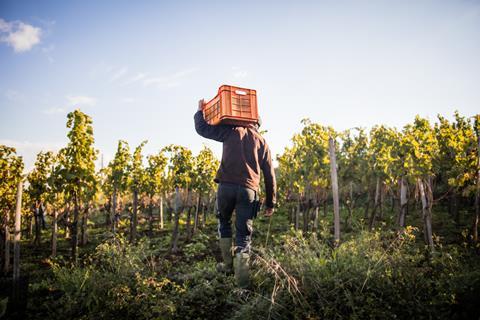
Growers and peers have expressed their disappointment at the government’s response to a House of Lords committee report calling for widespread reform of the sector, published in November.
The report from the House of Lords Horticultural Sector Committee revealed the industry was under-prioritised and underappreciated by policymakers, leaving holes in the UK’s food security and its ability to meet net zero goals.
However, many of the recommendations made by the committee have been dismissed by the government, to dismay from the sector.
The main priority from the report was for the government to publish its long-awaited Horticulture Strategy for England, “to set direction for the sector and give growers confidence”.
In response to the recommendation, Defra wrote: “We already take a strategic approach that focuses our research on taking action on the issues most important to the sector”, but did not say a specific strategy would be published.
“The government’s response to our report is underwhelming at best, and very disappointing at worst,” said the chair of the House of Lords committee, Lord Redesdale. “By not publishing a Horticulture Strategy, which they had previously promised to do, it will not give the sector the direction it needs or help with grower confidence.”
The response was described by Lee Stiles, secretary of the Lea Valley Growers Association, as “yet another disappointing response to issues facing British growers”.
Horticulture sector needs urgent safeguards, reports House of Lords committee
“The time and effort those in the sector spend on providing evidence, often highlighting the same issues time and again, seems to be dismissed at every opportunity,” he added.
The sentiment was echoed by the National Farmers’ Union which said the response did not “adequately address the significant challenges facing the sector and misses the opportunity to grow our fruit, vegetable, plants and flower industry”.
The NFU horticulture and potatoes board chair Martin Emmett said shortages of fruit and veg over the last twelve months had highlighted the fragility of the supply chain.
“We shouldn’t rely on imports to feed the nation,” said Emmett. “Instead we need government to match its own ambitions for the sector, alongside supporting our ornamental plant and flower businesses to achieve their environmental and biosecurity objectives.”
Another key priority from the report was the creation of a minister of horticulture, which has also been rejected by the government. “Ministers in Defra work closely together and across government to ensure that the sector is fully represented,” it said.
However, other recommendations from the committee have been acted on, including the need for a supply chain fairness review, which was kicked off after the publication of the report in December.
The government has also committed to the publication of a review of the Seasonal Worker route, but has not provided a fixed timeline.
“Its lack of urgency means the sector will be waiting with bated breath for it to be published in ‘due course’,” said Redesdale.
Additionally, in response to recommendations that government should process the visas of returning seasonal workers at cost price, the committee was told that its policy was that “those who use and benefit most from the immigration system should contribute towards the cost of operating the system”.
It said that nether Defra nor the Home Office made a profit from the applications where the fee was higher than estimated unit cost, and all income generated above it was used to fund the wider migration and borders system.
The official application fee for a seasonal worker visa is £259. This compared with an expected unit cost of £129, according to evidence given to the committee.
Regarding the commitee’s recommendations on labour, the government said it was considering the recommendations made in another report, the Independent Review into Labour Shortages in the Food Supply Chain by John Shropshire, which it has said would be published in early 2024.
Nick Marston, chairman of the British Berry Growers highlighted the good things in the report including the rules on ELMs and the apprenticeship levy, “these are easy and non-controversial things to do that also fit in very nicely with government policy in other areas”.
However, he added, ”we are seeing a lot of reports and reccomendations and no actions to date”.
”Horticulture needs to see action, we are in a financial crisis”.
The strain faced by the sector was echoed by Stiles who stated, “it is becoming ever clearer to growers that government is not prepared to intervene in the supply chain and this will result in more businesses closing, leaving larger gaps in the UK’s food security”.
“As a start, we need to give our British growers certainty by having a consistent plan for seasonal labour, including a five-year rolling Seasonal Workers Scheme, as well as sustainable returns and longer-term contracts with their key customers, the retailers and processors,” said Emmett.







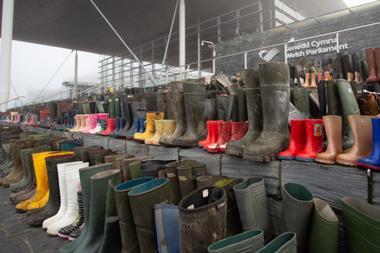
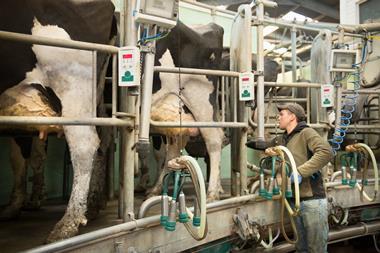
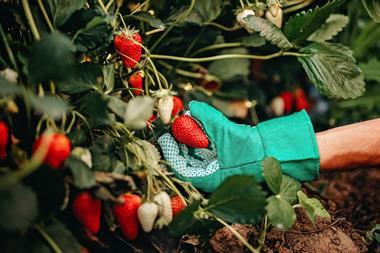

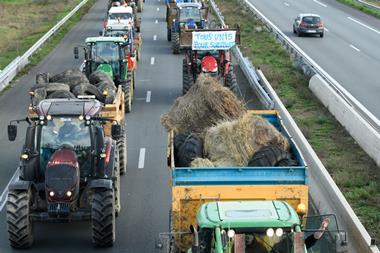
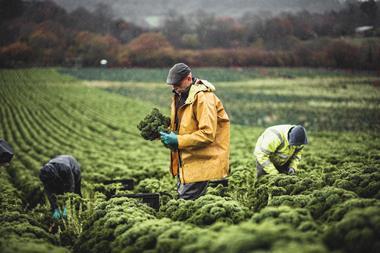






No comments yet